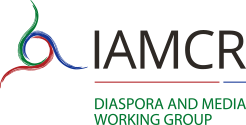 This Working Group aims to examine the role of diaspora groups in the production and consumption of the media from a variety of perspectives including the roles of cultural and discursive practices, the implications of new information technologies, the nature of globally dispersed diasporic communities.
This Working Group aims to examine the role of diaspora groups in the production and consumption of the media from a variety of perspectives including the roles of cultural and discursive practices, the implications of new information technologies, the nature of globally dispersed diasporic communities.
Co-chair: Brian Pindayi (Cornerstone University/Rusangu University, Zambia) [Contact]
Co-chair: Sumana Chattopadhyay (Marquette University, United States) [Contact]
Vice chair: Sofía Cavalcanti Zanforlin (Federal University of Pernambuco, Brazil) [Contact]
Vice chair: Jessica Retis (University of Arizona, United States) [Contact]
See the list of all current members of the Diaspora and Media Working Group.
To join the Diaspora and Media Working Group, login to your account and select My Sections and Working Groups from the menu. A number of IAMCR sections and working groups send notices and other information exclusively to their members. IAMCR members can join up to three sections or working groups.
This Working Group is concerned with the production and consumption of the media by globally dispersed diasporic communities. The changing relationship between diasporas and globalisation is examined in the light of the transnationalisation of the media and the reconfigurations of place, space and culture that affect everyday life for diasporic communities. Areas of interest include the interplay of the transnational and the local in diasporic communications, diasporic communications and identities, audiences and diasporic cultural politics, diasporic cultural production and consumption, and the tension between integration, cultural separatism and hybridity. This Working Group is also associated with Media Production and Consumption theme.
Join Working Group in social media: https://www.facebook.com/groups/499328720140317/

 This Working Group aims to examine the role of diaspora groups in the production and consumption of the media from a variety of perspectives including the roles of cultural and discursive practices, the implications of new information technologies, the nature of globally dispersed diasporic communities.
This Working Group aims to examine the role of diaspora groups in the production and consumption of the media from a variety of perspectives including the roles of cultural and discursive practices, the implications of new information technologies, the nature of globally dispersed diasporic communities.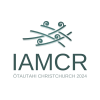


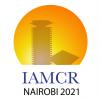



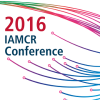
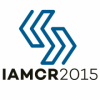
 Call for Proposals - IAMCR 2014 - Diaspora and the Media Working Group
Call for Proposals - IAMCR 2014 - Diaspora and the Media Working Group The IAMCR Diasporas and the Media Working Group invites submissions of abstracts for papers and panel proposals for the
The IAMCR Diasporas and the Media Working Group invites submissions of abstracts for papers and panel proposals for the  The IAMCR Diasporas and the Media Working Group invites submissions of abstracts for papers and panel proposals for the IAMCR 2012 conference to be held from July 15-19, 2012 at the Howard College Campus of the University of KwaZulu Natal (UKZN) in Durban, South Africa. The deadline for submissions is February 14, 2012.
The IAMCR Diasporas and the Media Working Group invites submissions of abstracts for papers and panel proposals for the IAMCR 2012 conference to be held from July 15-19, 2012 at the Howard College Campus of the University of KwaZulu Natal (UKZN) in Durban, South Africa. The deadline for submissions is February 14, 2012. The Diaspora and Media working group is calling for papers for a session of the working group meeting in Istanbul 2011, to continue to foster research and debate in this exciting new field.
The Diaspora and Media working group is calling for papers for a session of the working group meeting in Istanbul 2011, to continue to foster research and debate in this exciting new field. The Diasporas and the Media working group is calling for papers for a session of the working group meeting in Braga 2010, to continue to foster research and debate in this exciting new field.
The Diasporas and the Media working group is calling for papers for a session of the working group meeting in Braga 2010, to continue to foster research and debate in this exciting new field. EXTENDED DEADLINE: 15 FEBRUARY 2008!
EXTENDED DEADLINE: 15 FEBRUARY 2008!